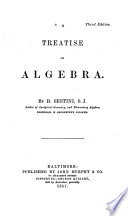 | Benedict Sestini - Algebra - 1857 - 258 pages
...or a*-* = - ; a* vv a" z z and consequently, x — y = I.-, that is, The logarithm of the quotient is equal to the logarithm of the numerator, minus the logarithm of the denominator. Raise to the exponent c both members of the equation a*= z, we will have (a 1 )' = z° or a" = z°,... | |
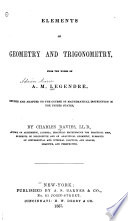 | Adrien Marie Legendre, Charles Davies - Geometry - 1857 - 442 pages
...equation (2), member by member, we have, , , Jf J/ 10m~" = .^or, m — n = log.r^: hence, The logarithm of the quotient of two numbers, is equal to the logarithm of the dividend diminished by the logarithm of the divisor. 5. Since the logarithm of 10 is 1, tf'e logarithm... | |
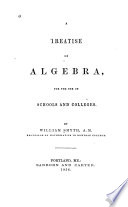 | William Smyth - Algebra - 1858 - 344 pages
...therefore by adding the logarithm of 5 to that of 7. Since moreover the logarithm of a fraction will be equal to the logarithm of the numerator minus the logarithm of the denominator, it will be sufficient to place in the tables the logarithms of entire numbers. 201. Below we have a... | |
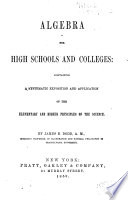 | James B. Dodd - Algebra - 1859 - 368 pages
...(41), in which x-\-y is the logarithm of the product n m. Logarithm of a Quotient. (309.) The logarithm of the quotient of two numbers, is equal to the logarithm of the dividend minus the logarithm of the divisor. Dividing the Equation ax = n by the Equation av=m, we... | |
 | Charles William Hackley - Algebra - 1864 - 532 pages
...that is to say, The logarithm of a fraction, or of the quotient of two numbers, is equal to tht • logarithm of the numerator minus the logarithm of...denominator. III. Raise both members of equation (1) to the nth power. N"=o". .-. by definition, nx is the logarithm of № ; that is to say, The logarithm of... | |
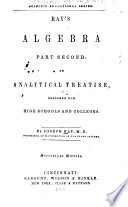 | Joseph Ray - Algebra - 1852 - 422 pages
...to a form in which it shall also be divisible by the same factor. Since the logarithm of a fraction is equal to the logarithm of the numerator, minus the logarithm of the denominator (Art. 361), therefore, . log. (l+x)- log. (l+z)= log. ( 1±? ) . But, by division, we find 'x=l-\-xz... | |
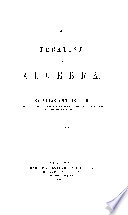 | Elias Loomis - Algebra - 1868 - 386 pages
...number corresponding to the resulting logarithm, and it will be the product required. 397. The logarithm of the quotient of two numbers is equal to the logarithm of the dividend diminished by that of the divisor. If we divide Eq. (1) by Eq. (2), member by member, we shall... | |
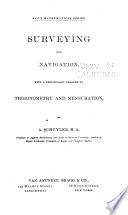 | Aaron Schuyler - Measurement - 1864 - 506 pages
...product of 85, .097, and .125. Ans. 1.03062. DIVISION BY LOGARITHMS. 16. Proposition. The logarithm of the quotient of two numbers is equal to the logarithm of the dividend minus the logarithm of the divisor. (" (1) 6-= yn; then, by def., log TO = x. Let ] ( (2)... | |
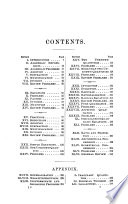 | Daniel Barnard Hagar - Algebra - 1873 - 278 pages
...member by member, we have ax+'=mn, in which x+y is the logarithm of the product mn. 4. The logarithm of the quotient of two numbers is equal to the logarithm of the dividend diminished by that of the divisor. For, dividing the equation a? = m by the equation a" =... | |
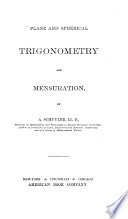 | Aaron Schuyler - Measurement - 1875 - 284 pages
...product of 85, .097, and .125. Ans. 1.03062. DIVISION BY LOGARITHMS. 16. Proposition. The logarithm of the quotient of two numbers is equal to the logarithm of the dividend minus the logarithm of the divisor. Г (1) b" = m; then, by def., log m = x. Let i. (_ (2)... | |
| |